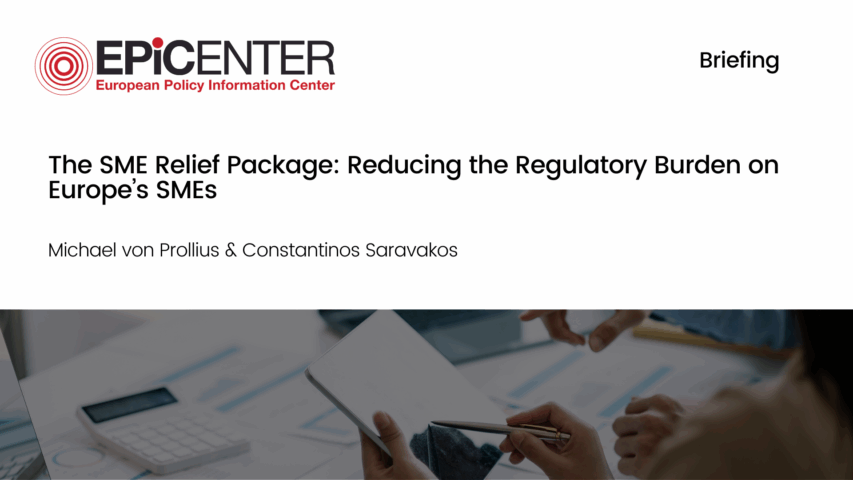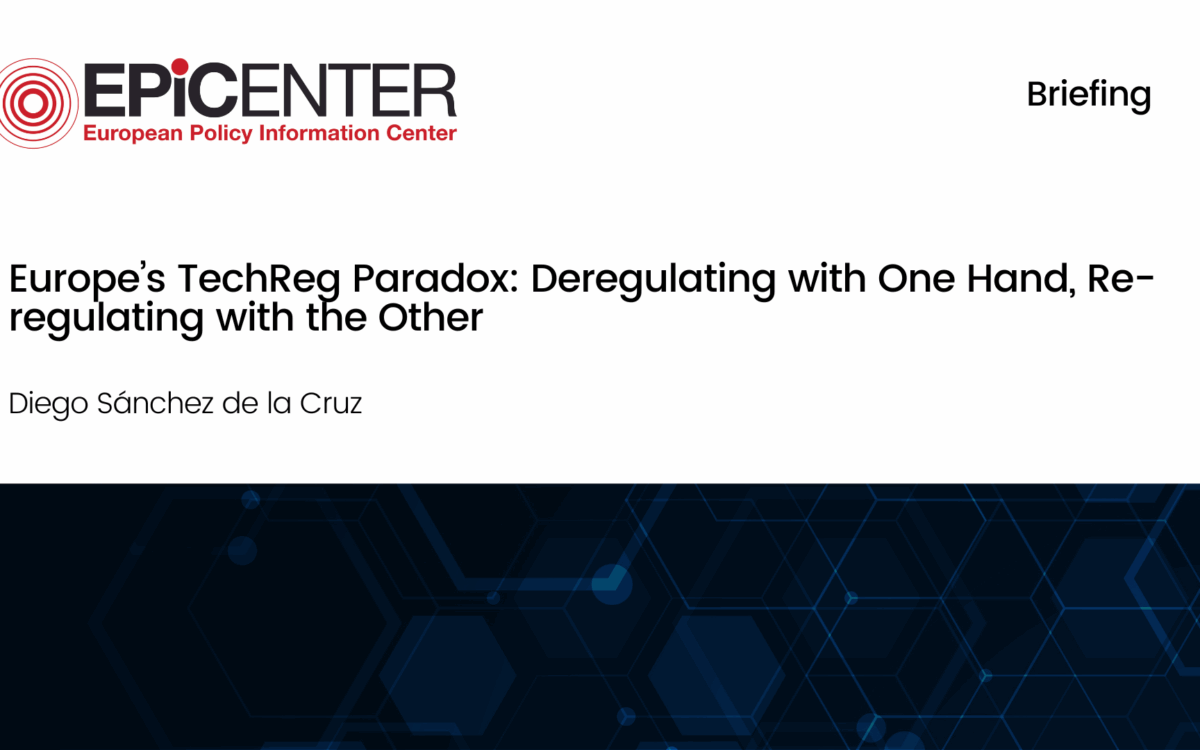The SME Relief Package: Reducing the Regulatory Burden on Europe’s SMEs

The SME Relief Package: Reducing the Regulatory Burden on Europe’s SMEs
Michael von Prollius & Constantinos Saravakos // 31 July 2025
The European Commission’s SME Relief Package is a response to the growing challenges faced by small and medium-sized enterprises (SMEs) across the EU, including excessive red tape, regulatory fragmentation, and weak cross-border scalability. While the package introduces 19 measures to ease the compliance burden, ranging from tax simplification and late payment rules to digital tools and reporting relief, it stops short of delivering structural reform or reversing the EU’s interventionist logic.
The inaugural report of the EU Regulatory Observatory, a new initiative by EPICENTER, assesses the SME Relief Package using a systematic 0–10 scoring framework. With an average expert score of 6.57, the legislation is viewed as a modestly deregulatory step. However, opinions are divided: while some experts see tangible improvements, others argue that the measures rely too heavily on non-binding instruments and fail to address the root causes of regulatory overreach.
The main conclusions of the observatory are:
-
The SME Relief Package is seen as a modestly pro-liberal reform, earning an average expert score of 6.57 out of 10, reflecting limited but tangible deregulation.
-
It introduces two legislative acts, a Head Office Tax System for cross-border SME groups and a binding 30-day payment rule, alongside 17 supporting tools and institutional reforms.
-
Key initiatives include a revamped SME Test, reduced sustainability reporting requirements, and the appointment of an EU SME Envoy with formal access to legislative processes.
-
Despite its deregulatory aims, many measures remain non-binding and risk introducing new layers of bureaucracy, particularly through additional oversight bodies like the SME Envoy and Relief Tracker.
-
The package fails to tackle deeper challenges such as excessive taxation, unfunded pension systems, labour market rigidity, and barriers to market entry and capital access.
-
Legal equality, subsidiarity, and regulatory neutrality remain only partially addressed, raising concerns that selective SME privileges may distort the single market and institutionalise dependency.
-
The briefing calls for a more principle-based, market-oriented approach that includes sunset clauses, rigorous cost–benefit assessments, universal rule harmonisation, and a ‘delete-first’ culture for ineffective laws.
Download or share this publication
View the PDF
EPICENTER publications and contributions from our member think tanks are designed to promote the discussion of economic issues and the role of markets in solving economic and social problems. As with all EPICENTER publications, the views expressed here are those of the author and not EPICENTER or its member think tanks (which have no corporate view).



